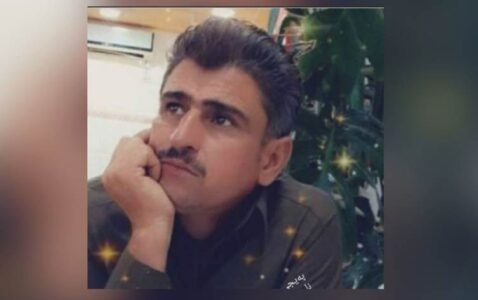
The Islamic State demands prisoner exchange for the return of Kurdish hostage
The family of a Kurdish policeman held hostage by the Islamic State (ISIS) group says his captors will release him in exchange for the wife of one of their leaders in the custody of Erbil authorities.
Jalal Baban, 40, worked as a policeman for the Kurdistan Regional Government (KRG) in northern Diyala province until he was captured ten months ago near the multiethnic town of Qara Tapa.
Baban and his cousin Hassan Bali were abducted while cultivating their farmland in the vicinity of their village, Naren, in the district of Khanaqin. The cousin was freed by the terrorist group after the family paid a large ransom.
“Three days into our abduction, they told me ‘since you are not working for the government, you will be released and can go back to your parents, but not your friend, because he works for the government,’” Bali, recounted, saying he was released for the hefty sum of $57,500.
After ten months of captivity, his family says the militant group is forcing Baban to send them voice messages via the popular Telegram messaging application, saying his only chance of survival is the prisoner exchange.
In his third and latest voice message, which his family has forwarded to Rudaw, the abductee calls on his family to persuade authorities to release the woman in KRG custody.
“I am Jalal Baban Ibrahim. To all of my family members from the Geci tribe; the Islamic State is informing you and giving you a 10-day-ultimatum to end this issue [prisoner exchange], if not they will kill me and you will be guilty for my death,” Baban says in the voice note, in what appears to be a prepared script.
“I have been in the hands of the Islamic State for 10 months now. Yet, my issue has not been solved. I am calling on my whole family to intervene and help save my life,” he goes on to say in Arabic.
Baban’s mother says the woman is incarcerated in the capital of the Kurdistan Region. Rudaw has reached out to local authorities, who confirmed the woman in question was in their custody, but would not comment further.
Kurdish authorities have consistently said they do not negotiate with terrorists and that no prisoner exchange has taken place between the Region and ISIS or any other similar extremist group.
Despite this, the family urges the KRG to accept ISIS’ terms, which they hope will save the life of their son.
“All they want is a woman held by the Asayesh,”” Baban’s cousin Izzadin Karim told Rudaw Wednesday, referring to the Kurdish security forces. “If the prisoner exchange is not done, I do not know what will happen to him.
“I want Jalal back,” Baban’s distraught mother added.
The woman ISIS is fighting to free is allegedly the wife of an ISIS leader, the family says the group has told them. According to her documentation seen by Rudaw, she is a 23-year-old Yezidi woman from Shingal (Sinjar in Arabic), where ISIS committed genocide against the ethno-religious minority, and took many woman and girls into captivity.
ISIS first swept across Iraq in 2014, capturing cities across northern and central Iraq including Mosul, Iraq’s second largest city and the capital of Nineveh province. At the height of its power, ISIS controlled a contiguous area equivalent in size to the United Kingdom. During their occupation of Iraq and Syria, ISIS subjected as many ten million people to an extreme and violent interpretation of Islam.
Although Baghdad declared the territorial defeat of the group in Iraq in December 2017, its remnants have since reverted to insurgency tactics; ambushing security forces, kidnapping and executing suspected informants, and extorting money from vulnerable rural populations.
According to Peshmerga’s monitoring of ISIS, the terrorist group has continued to be plenty active in 2018 and 2019, especially in Kurdish-populated areas outside the KRG administration, including Diyala, Hamrin, Kirkuk, Tuz Khurmatu, and Qarachogh, Jabar Yawar, secretary general of the Ministry of Peshmerga Affairs told Rudaw in April.
Source: Rudaw





